#I just really love learning about puppetry and practical effects stuff
Text
I wanted to share this because I think it's awesome, and it highlights some neat stuff about the puppetry, in addition to a bare-bones summary of the movie
youtube
#I just really love learning about puppetry and practical effects stuff#That's the whole reason I love Labyrinth so much because I'll admit the plot is a bit scattered and wacky#But it's still a fantastic movie with beautiful details#This channel is pretty neat too. They do all sorts of short videos about amazing stuff from all over and featuring lots of topics#But here you go!!#I know it's a little silly and random but I just enjoyed it so much I thought I'd share it#not mbs#labyrinth
17 notes
·
View notes
Text
Press: Elizabeth Olsen and Jurnee Smollett Compare Notes on Genre-Blending Acting and Advocating for Performers on Set

VARIETY: Neither Elizabeth Olsen nor Jurnee Smollett are strangers to having to really stretch their imaginations to dive into complex characters and even more complicated worlds.
Both have superhero films on their résumés: Smollett portrayed Black Canary in DC’s “Birds of Prey,” while Olsen stepped into Wanda Maximoff aka the Scarlet Witch’s shoes for Marvel’s “Avengers” franchise and then some — including Disney Plus’ first Marvel series, “WandaVision.” They are both now Emmy-nominated for projects that tasked them with jumping through time, blending genres and telling epic love stories (Olsen with “WandaVision,” Smollett with HBO’s “Lovecraft Country”). And, even though they are up in different categories (Olsen in lead limited series/TV movie actress; Smollett in lead drama actress), both of these shows are one-season wonders, leaving the performers and their audiences wanting more.
Olsen and Smollett dissected all that of when Variety brought them together post-nominations to talk about their celebrated roles and surreal playgrounds.
You both had a lot of magical or otherwise surreal elements to interact with on your shows. What did you actually have in front of you to react to on set?
Jurnee Smollett: We were very fortunate on “Lovecraft Country” because the whole VFX team worked so hard to create an atmosphere that was also practical in our space. I remember on Episode 3, the exorcism scene, we shot it over a course of three days and, while there was not a man in real life with a baby head on him, you’ve got the wind machines and the pictures are blowing and all the special effects makeup is being touched up. Atticus [Jonathan Majors] has pretty much turned into a rabid dog and I’m doing this spell with my ancestors and whether they were shooting behind us or shooting the elements, we were at our max capacity regardless because that’s just how we approach the craft. It was such a big sequence to shoot that that’s when the actor in you has to advocate for your instrument. I did go to the director and say, “Can you jump in and cross shoot Jonathan and I?” As an actor it is our job to shoot however many takes, however many angles you need, but then it is also our job to advocate for yourselves. And I love playing in this space because you get to use your imagination you get to go to crazy places. Because even while the practical elements are there; you get to go to crazy places. But I was grateful for the practical elements because it’s just so much easier.
Elizabeth Olsen: Did they have pre-viz so you knew what some of the supernatural elements looked like?
Smollett: With the Shoggoths they not only had a pre-viz for us, but for some of the scenes they had massive sculptures, like a dude standing there in a green suit with a Shoggoth head. The pilot we didn’t have this puppet, but by Episode 8, maybe we got more of a budget or something, but eventually we did get a puppet — which was really cool because you could see, “This is the moment his mouth is opening.” But also, Misha [Green], our showrunner, she just wants more blood, more dirt. She’d try to get them to blow spittle at us.
Olsen: That’s so gross!
Smollett: This concoction of Shoggoth spit, throwing it in front of this wind machine. I find the more practical stuff we have to work with, it just helps so much. And then there were the moments where it’s like, “No it’s just a green tennis ball and an X, and go.” How about you?
Olsen: For all those little things in the air and stuff in the ’50s, it was really important to our director [Matt Shakman] that we did everything ala “Bewitched.” It was all camera tricks, it was all wires. Our head of special effects had a lineage of a father who [did] special effects before him, and so puppetry and wire work and stuff like that were things that were already in his vocabulary, but we would have our special effect guys who are used to blowing things up and putting things on fire just balancing and making sure things aren’t swinging but they have to move. Even in the ’70s when she’s pregnant and everything’s in chaos, we really had a picture on the wall going in circles; they just figured out things with magnets.
When we were filming the finale, it was during COVID, during the fires last summer, and we shot Kathryn [Hahn’s] side at the beginning of the episode when she has my boys with her magic — we had to shoot them out because you always have to shoot the side with the kid out and also Kathryn was doing wires for the first time and of course it was with a corset and it was really hot and really bad air quality and so she had to be sent home by the medic at the end of the day. And so, on my side we were running out of days, and I think we had 35 minutes to shoot my side and my reactions to all of that, and there’s quite a bit of back and forth and throwing myself to the ground and hitting a different mark that will then stitch with the stunt double being pulled. I did a weird one-woman show sans kids, sans Kathryn. Our stand-ins were such a huge part of our show and I was so grateful to have them they’re reading lines with me, and our director, Matt Shakman, was like, “If you feel like you can’t do this, we’ll just do this tomorrow.” That gave an adrenaline rush to me and it just became, “I’m just going to do it.” There’s a lot of fear when you’re like, “Oh I don’t have the elements and I am on my own, literally.” But I’ve had to do this before and I’m just scared to do it because I feel stupid. But I already look kind of stupid — I’m shooting things out of my hands — so why don’t I just lean into it as full as possible and just do it and find it in some core, guttural space of desperation? That day was bizarre, but I was actually very happy that I didn’t put it off. I feel like sometimes as actors when there are things that make us nervous it’s like, “Oh we don’t have enough time to explore so let’s do it the next day if we can,” and then you’re in your head all night about it. And so, it’s nice to just do it, even if it feels silly.
Smollett: I’d imagine surrendering and using the fear and all that that you were feeling probably served you so well in it.
Olsen: And don’t you feel that, though? When you feel unsupported you just want to break down in tears and you’re not supposed to break down in tears or you’re not supposed to have those it’s those feelings in the moment, but there are other times where it is really useful and there’s something freeing about channeling it in some way.
Smollett: Yeah and it’s that word you just used: freeing. Being able to surrender — leap and the net will appear. And you’re right, if you would have gone home, you probably would have come back the next day and you would have overthought it. There’s something about using the adrenaline in that moment that I don’t think you can really teach an actor to do; it’s just experience. Because we go and we prep and we do all these things, and then you get to the set and there’s one distraction, two distractions, and those are the elements that just through experience you’ve learned to use.
But I have to say, when I was little, I used to go to sleep every night watching Nick at Nite and “Bewitched” was one of my favorite shows. I did not expect you guys, at all, to go to land of “Bewitched.”
Olsen: I didn’t either. I’m so grateful to it. I felt like I like forgot my body as an actor. You’re a very physical actor, so I feel like you probably don’t have that experience because you just seem so connected and free whether it’s on stage or doing action. And I really felt disconnected from my body until “WandaVision.” I was like, “Right, I have posture; I can walk; I have legs — all of these things are going to be telling the story and it’s period and so I get to move differently.” It’s been a while since I needed to create quite a different character, and it felt so good to wake up my body to the full character work.
Just watching you in the first episode on stage, I was like, “God damn, I want to feel that free on stage with a song and with an audience.” I’m a self-conscious actor when it comes to extras and things like that. There’s something about it where the crew’s the family, and with extras, I feel so vulnerable. And you seemed so at ease and in control and confident. It made you understand her fierceness and how fearless she was.
Smollett: Thank you so much! It’s so interesting that you point that out because, for me, singing in front of people terrifies me. It truly is one of the things that terrifies me the most. The thing about Misha’s writing is, she finds a way to teach you so much about a character in such a small amount of time. And in that first sequence we learn so much about Leti, from that fearlessness you talk about, the ease that she has in herself and in her person, but then you learn so much about her hypocrisy and the contrasting ideas that are at play inside. She’s a very complex one. In the scene with her sister where she’s talking about having dreams of pioneering into an all-white neighborhood in 1955, but she can’t afford to may for socks. [Laughs.] She didn’t come to her mother’s funeral, and yet she’s here yearning for some sort of family connection. And so, I just remember reading that and feeling so drawn to her and feeling like it’s a side of myself that I needed to unearth — there’s a Leti in me that I desired to actually be, but sometimes am not. And it’s interesting because through Leti, she really forced me to do so many things that I hadn’t done before and really become more fearless, become more unbound. It was just such a very cathartic experience for me.
Olsen: I felt that way with getting to do this sitcom comedy part. I felt like I was touching my childhood version of myself who was a ham doing children’s musical theater, who just who just like played for the laughs or whatever — that part that I don’t access at all, really, when filming. And Kathryn Hahn was such a force and Paul Bettany raised to the challenge, as well, of these comedic performances that were really physically funny. I started to get more comfortable — in the ’60s, ’70s, really got comfortable — and it was so much fun to touch that child that maybe was told too many times, “Oh, you’re such a ham” or you just felt like your big personality as a kid was not OK or wasn’t as appropriate. And so, getting to play with that was really freeing and very fun. As you were saying, there’s a release I needed to have, and through the comedy I was able to have it.
How did this sense of empowerment affect how you carried your own characters’ power? Was there something your character that inspired you to advocate for yourself or did advocating behind-the-scenes inform in-world behavior?
Olsen: I felt very lucky coming into this, because this is a world I know. And so, where my voice of advocacy came in was for actors who are coming into the world — like Teyonah [Parris], wanting to make sure that she had everything that she needed to understand where her character was going because this was a character that’s going to continue [and] if she had everything she needed for stunts. And then similarly with Kathryn, she didn’t realize there was someone who she could use to teach her hand gestures for her magic. And so, she was feeling nervous and lost, like, “How do I do this thing?” And I was like, “Oh, how do you not have that information!?” And then having a conversation with whom you need to on the crew up top and figure out how to keep everyone else feeling like they had everything they needed. And luckily, because this was a show with characters that Paul and I had before, the pieces came together and it was a situation where your voice is welcomed and heard.
From “Sorry For Your Loss,” the TV show I did with Facebook, I now have a producer voice that I can’t shut up. I now just need to talk to ADs a lot, and I need to talk to line producers a lot. I realize that I like having — especially if I’m No. 1 on the call sheet; if I’m a primary part — all of the information so I can understand why decisions that seem weird are happening, or else I’m going to get in my head about, “Why are we doing this this way? I just let people know that off the bat now because it makes me less of a control freak, having information. And it is a team effort and I think the actor’s value has changed in that in that respect. There’s a lot more opportunity for women to be vocal now, and so I’m just really seizing that opportunity.
Smollett: It was a very personal growing experience for me. It was time of transition [and] I’m still going through that transition in my life. In order to truly surrender and do the text justice, there was so much I had to bring to the altar every day to sacrifice. I remember talking to Jonathan about that, and he would refer to it as allowing your heart to break and hoping that the Holy Spirit would put it back together. She was essentially a woman trying to navigate her womanhood but she was never actually allowed to have a childhood. She was habitually abandoned by her mother and didn’t know her father and there’s something in that parental-daughter split that I found myself really relating to. Oddly enough like Leti, I was estranged from my father for years. He eventually passed away, really before there was that healing and so, oh man, it brought up so much shit with Leti. How does she see the world? She sees the world through the eyes of an abandoned child. With Leti, that made her overcompensate; with Jurnee, it made me shrink a lot. When you talk about that artist child, those of us who have been in this business for so long, you take on all the sensors. And I found myself just trying to love her a little more. One of the things I admired so much about Leti is this desire to love herself — this real desire to own herself unapologetically in a world that told her she was too Black and female, to exist in her entirety. It’s still a transition that I’m in, but I definitely feel so grateful to have been able to walk through some of that and navigate through some of that with Leti. But that’s, I think, the blessing and the curse of being an artist. You’ve got to be willing to bring your whole mind, body and spirit to it; nothing’s off limits.
Jurnee, the last time you spoke with Variety we were all assuming you’d get to return to this character, but now that HBO has said it’s not being renewed, do you have unfinished business with her?
Smollett: It’s no secret I’m heartbroken. I loved Leti and of course would have loved to continue playing her. But I am so incredibly proud of the work that we all created together — it feels so special and unique — and I am finding peace in that. We’re artists and there’s an endless well that dwells inside us— and there’s so much that’s out of our control. And I think I’ve done this long enough and I’ve experienced enough heartbreaks to know you don’t get attached to the results too much; you just try to stay in a moment. And I feel just so proud and blessed to have been chosen to go on this ride with these collaborators, so I am more so in the place of gratitude than loss.
On the other end of the spectrum, “WandaVision” was a limited series but Wanda Maximoff is a character you have been coming back to for years, Elizabeth. How do you approach that longevity — the changes in her, the changes in you and the interest in revisiting her at all?
Olsen: I’m 32 and I was 25 — so seven years ago — when I did the first one. There’s so much change that I’ve had, even as an actor and how I approach work and, I think, honor work so much more in the last five years, four years of my life. [Jurnee’s film] “Birds of Prey” feels like such a female-empowered thing, so I feel there’s a really incredible energy to beginning it, but then with me you hear people make comments about Marvel movies and it affects your own process. “WandaVision” really shook that up for me and made me reinvest.
Smollett: I so want to know your process with that because the comic book space was new for me. I’d been a fan; I’d seen all your movies and the other movies. How did you navigate all of those voices? Because they can be very loud.
Olsen: Luckily and also frustratingly my character was always this emotional anchor to a piece of the story. It was like the heart, if there’s a heart. Paul and I were the only romance that was really fleshed out in those movies. And so I just treated it like I would anything. And then, we have a really fun time filming “Avengers” And so it’s really goofy and the Russos are great. And so we, it feels light-hearted, and it feels like we have the last laugh at the end of the day. But when it comes to the reinvesting, that’s the whole mind game, right? Because you just hope that it continues to have this quality control, but the more the more things get made, you’re worried about that. Especially because I did a show on Facebook that was scripted, and I didn’t love the way they handled it. And it was hard. And so second season, we went back and we literally, as a team of producers, had meetings with people who ran Facebook Watch about where we thought they could improve. We had a whole presentation for them. And then eventually, they were like, “We’re not doing scripted anymore.” And so I didn’t have the greatest experience being a part of the launch of another streaming service. And so, the Disney Plus part made me nervous and then bringing these characters that are so big to television made me nervous. But Kevin Fiege explained to us that that they were not going to cut corners, and they’re going to try and create the same attention to detail, and they did. And I think it was really important for them to have that care for these first three shows that they were putting out because it was defining a new thing for them. And so, we were taken care of.
I think more for me with this with the reinvestment moving forward, I never had a six-movie or nine-movie thing; it was always two or three at a time — those were my contracts. And so, it’s always a really conscious decision. I wrapped “WandaVision” on a Wednesday and flew to London on a Friday to continue playing this part [in “Doctor Strange 2”]. I could have used getting out of the mindset, though, because they were totally different utilizations of the character and people would have had more time to understand “WandaVision” had we not just wrapped. And so there’s just a lot of, “We covered this in ‘WandaVision…’” It’s bigger than me, there’s lots of threads that are continuing on after me that I’m not aware of, and so it’s always about, “What can I get from this journey with this character that maybe I haven’t tapped into yet with her?” That’s where I keep approaching things from, so that I feel like I have some sort of strap-hang — that I can know that there’s going to be growth of some kind, even though it all maybe looks the same to other people. There is that conscious decision to learn a new element of this woman, or even of myself as an actor — something that I want to explore that I can bring to it.
Your passion for acting is apparent and you both produce as well. What about directing?
Smollett: I would love to one day. I find myself currently being incredibly excited about producing and ushering new voices and excited voices. I don’t know that I would want to direct myself — that’s a whole other skill. I remember watching Denzel Washington, who directed me in “Great Debaters” but he was also in it, and at that point he had such a command of his instrument that he was able to do that. But it’s a lot. And I remember him telling me, before directing himself, he went and made himself watch all his films just so that he could stomach this idea of watching himself in the editing room. And so, I love the idea of storytelling; I’m obsessed with just telling stories, but I don’t know that I would self-direct.
Olsen: I find myself still loving producing so much because I love asking questions and poking holes and thinking about reorganizing of storylines, things that I feel maybe need more structure. I loved writing essays in school so much; it was like something that I found creative because it was about putting so many different sources into a braid that could maybe create this larger conversation or thought at the end. And so, that’s how I look at scripts. That’s really satisfying enough for me, to play that role. I think one day I’ll think about it more honestly, what it what it would mean to be a director. I fear that if I were to do it anytime soon, I wouldn’t have the tools that I would want. I do ask lots of lens-y questions because I’ve really only been working for 11 years and only recently have I tried to really understand the art of what lenses to choose and why and what it makes an audience feel based on what you’re choosing. I want to have a better, more holistic understanding of [that] before attempting [directing] because I do think it’s such an art and just because I understand the structuring of a story or how a set works, I want to be able to provide the the image in my head. I don’t know if I have that skill yet, but I am curious about feeding it and nurturing that.
Press: Elizabeth Olsen and Jurnee Smollett Compare Notes on Genre-Blending Acting and Advocating for Performers on Set was originally published on Elizabeth Olsen Source • Your source for everything Elizabeth Olsen
#Elizabeth Olsen#WandaVision#Avengers#Scarlet Witch#Wanda Maximoff#Sorry For Your Loss#Avengers Infinity War#Avengers Age of Ultron#Captain America Civil War#Ingrid Goes West#Godzilla#Doctor Strange in the Multiverse of Madness#Marvel#MCU#Candy Montgomery#Love and Death#Avengers Endgame
28 notes
·
View notes
Text
30 Days of the Dark Crystal Challenge
Decided to do poultry-blocks Dark Crystal challenge because it looks like a lot of fun to do. However I’m cheating and I wrote all of this within a couple of days. Warning: fairly large post with pictures and fan ramblings.
EDIT: I FORGOT TO INCLUDE DAY 16 WHOOP. It’s in there now.
Day 1. Your favorite skeksis
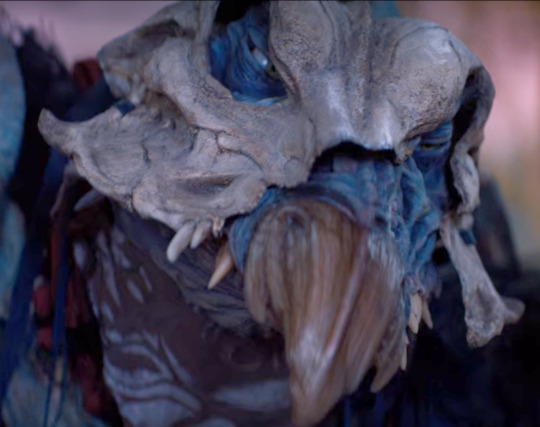
Idiot, feral, wildman who stole my heart. How? Why? Who knows. *chef kisses* Beautiful stinky bastard.
Day 2: Your favorite gelfling
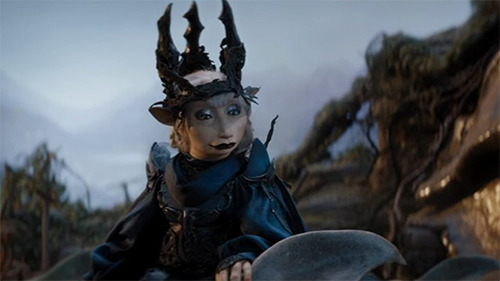
Bless her and her skeksis cosplay. What a queen.
Day 3: A character that you love that everyone seems to hate.
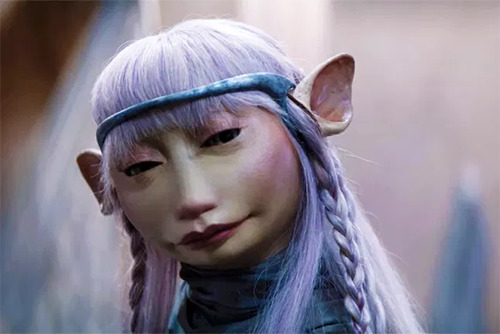
The tides are changing for her it seems. I think people are appreciating her more, but she still faces her fair share of controversies. Not that I don’t think it warrants discussion nor am I excusing her actions. But she’s way more complex than what a lot of people are making her out to be.
Day 4: A character that you hate that everyone seems to love.
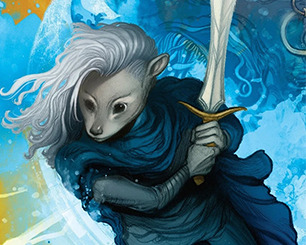
Hate is a strong word as I don’t hate him, but I don’t really care for Amri. He feels like a bootleg Deet mixed with a little bit of Kylan and Gurjin. Wasted potential and honestly shouldn’t have been the POV for Tides of the Dark Crystal. Seems I’m alone in this opinion, though. Maybe the book warrants rereading?
Day 5: Movie or TV Show? Why?
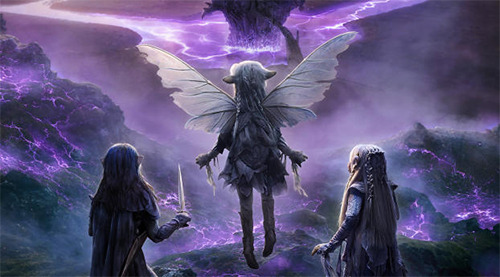
TV Show by miles! I think the series accomplishes way more than the movie does, like establishing lore, better written characters, and a more engaging story. I actually cared about the gelfling and it really fleshed out the skeksis in an interesting way outside of “oh they do evil things because they’re evil!”. Doesn’t mean it does everything right, but I’ll get into that later.
Day 6: Something you wish that happened in the series but didn’t.
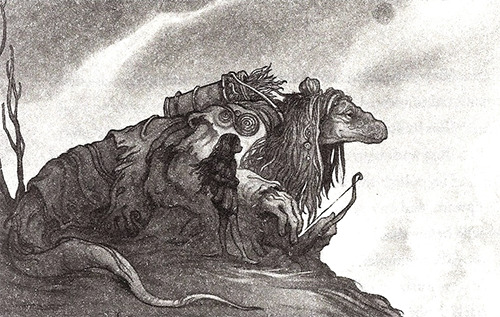
Just a few things. I miss the gelfling intermingling with the mystics, particularly urVa. I love everything that happens with urGoh and skekGra, but some of the bonding moments Naia had with urVa are precious and I wish we had more of that. I also wished the gelfling got the message out to the other clans like they did in the book where Kylan dreametched their message onto the Santuary Tree’s blossoms and scattered them all throughout Thra. I also wished Tavra and Onica were an established couple, but maybe it’s not too late for that.
Day 7: Favorite gelfling clan
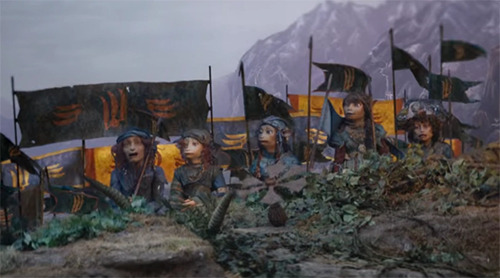
The Sifa! It was the Dousan at first, but the more I learned about the Sifa the more I grew to love the clan. If I were a gelfling I would probably be a sifa myself LOL.
Day 8: You opinion on Aughra
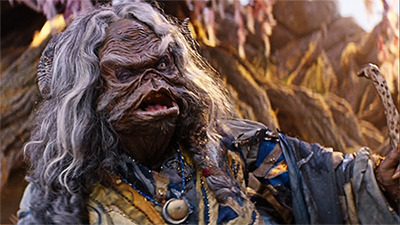
She’s a fun and fascinating character! Aughra puts a unique spin on the whole beautiful, wise earth goddess trope by making her ugly, old, and cranky. She’s also a character with her own flaws, even having a mini arc about neglecting to take care of her planet and doing whatever she can to make amends. Not to mention she’s wildly entertaining. Much love for Aughra!
Day 9: Skeksis or Gelfling?
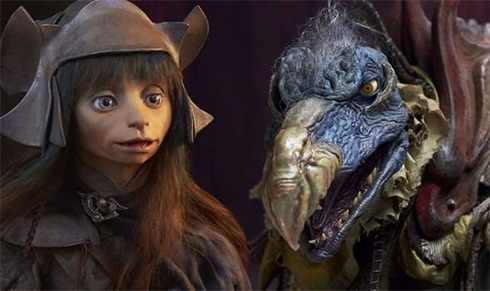
Both!
Day 10: Your opinion on podlings?
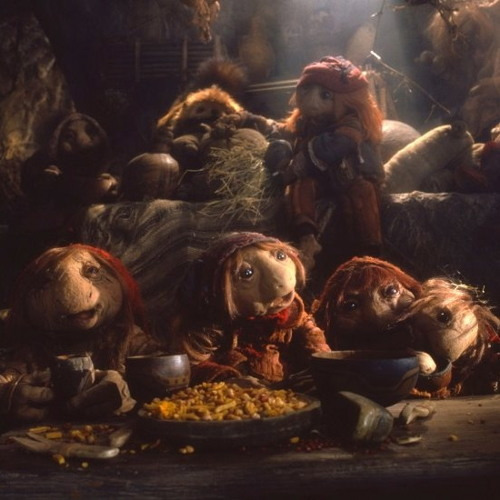
They’re just funky little potato people who just want to have fun, dance, and drink all day and I respect them for that. They’re great. Also Hup exists and he’s just an amazing character so there’s that.
Day 11: Your The Dark Crystal unpopular opinion
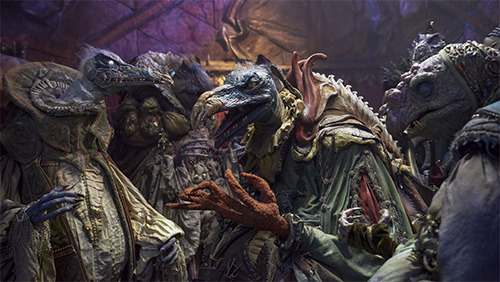
I think it’s okay to sympathize with the skeksis as long as one is not excusing their actions. I see a lot of people say you shouldn’t because they’re evil and they commit atrocities. Which, yes, it’s true, but I think both can co-exist. I mean, skekTek’s whole cycle of abuse is written very sympathetically yet the show doesn’t coddle him. It shows the ugliness of his character and what happens when someone isn’t capable of cutting off from said cycle. Also the writers consider the skeksis as tragic characters due to their broken nature so I don’t think it’s wrong to be a little sympathetic. But once again with great emphasis, sympathy is fine as long as their actions are judged. They are awful bastards and no amount of sympathy will change that.
Day 12: Something you dislike about the series
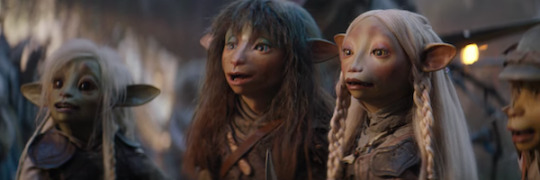
I think the stuff I don’t like about the show is a result of its pacing and cluttered cast. There are so many stories going on and while I liked how they handled it for the most part, you can also see how the show rushes to get through all of them. A lot of important moments where a character should reflect or something that should simmer more is pushed aside for the next thing. Maybe if the show was given more episodes and time to breath it would have been better off.
Day 13: Most disappointing thing about the series
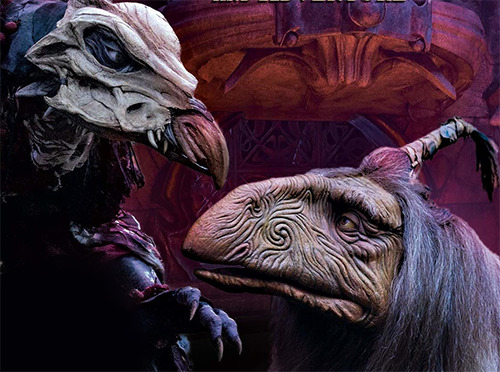
SkekMal and urVa didn’t have enough screen time and we were honestly ROBBED.
Day 14: Your OTP
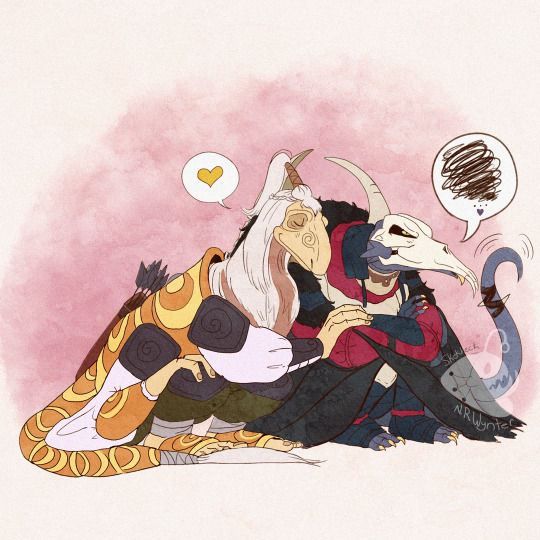
Speaking of which... . Its a crack ship, but I’m all about that allegory for self love (and I just want these two to be alive).
Day 15: Favorite quote
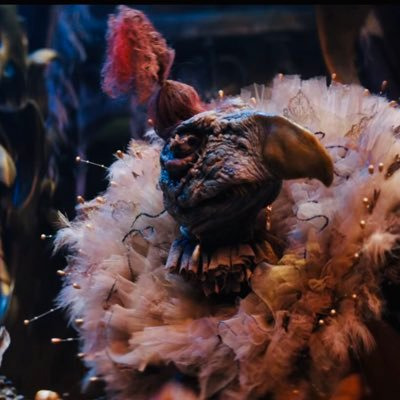
Listed plenty of my favorite quotes before, but I’ll pick this one:
“ Life is my paint. Death is my canvas”
Day 16: Rate the skeksis from least favorite to favorite OR rate the gelfling from lest favorite to favorite [or both!]
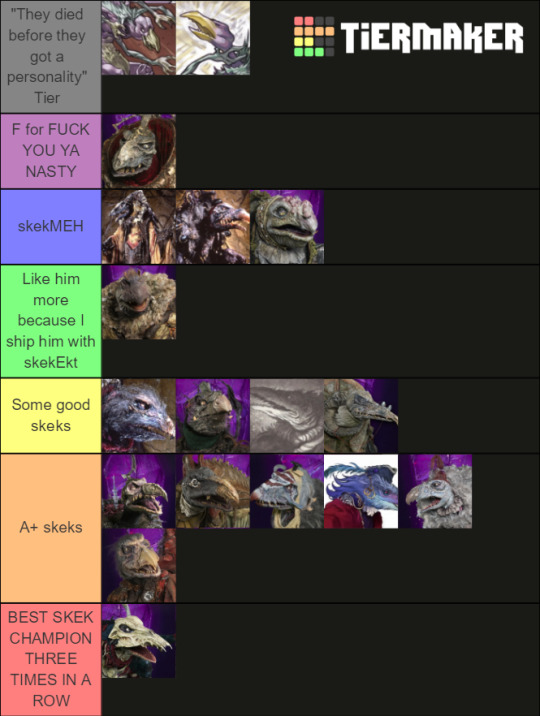
And if you want my gelfling hot takes, here’s this list (just backwards in context to this post)
Day 17: Opinion on Raunip?
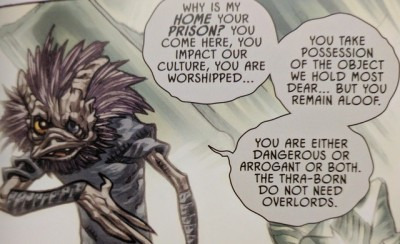
Raunip is a fantastic character. I loved him in Creation Myths and I can’t wait to see what role he’d play in the resistance. And I absolutely love the parallels between him and the urskeks it’s great.
Day 18: A character that is most similar to you.
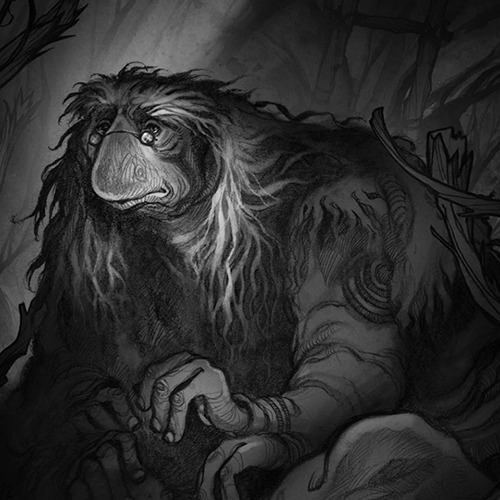
I too am a dark-dwelling gremlin who constantly forgets where I put things and crack a few dark jokes at my expense.
Day 19: Which character do you strongly dislike, why?
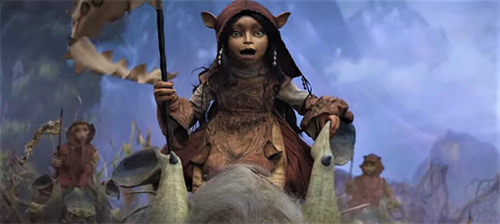
This is entirely based on the books, but I find Mera to be awful. I think it’s because she’s so fake and condescending? When Naia arrived in Sami Thicket, she was acting nice and polite but when the Drenchen asked her why the skeksis never visited Sog Mera responded “It’s only worth counting what’s valuable”. She continuously disrespects her by calling her pet names even when Naia became maudra. It doesn’t come off as cute, it’s gross. I don’t recall Mera ever apologizing for any of the shit she did to Naia... or Kylan for that matter. She was a pretty neglectful step-mother to him. She doesn’t have an excuse being busy with Maudra stuff because Laesid was a kickass mom to her kids. So in conclusion, fuck this bitch.
Day 20: What do you like so much about the Dark Crystal?
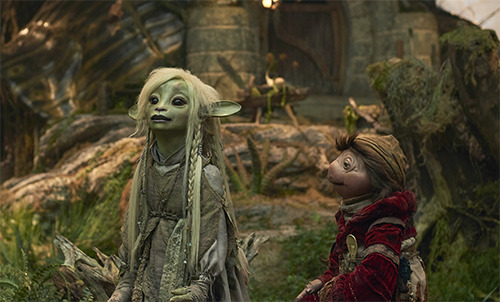
The better question what’s not to love about the Dark Crystal? It has amazing creature design, an expansive world that feels real and alien from our own, having complex and interesting characters as well as villains, the fact that it relies heavily on practical effects a.k.a puppetry... . There’s nothing like it and that’s what makes it so wonderful and unique. It needs to be appreciated more.
Day 21: Favorite music piece from the soundtrack?
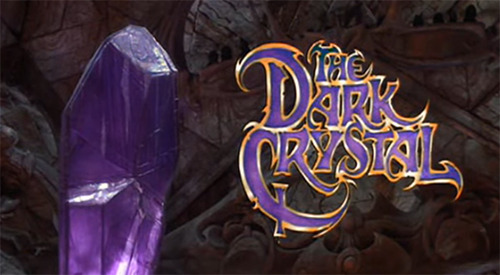
Can’t beat that opening theme.
Day 22: Your opinion on the sequel comics [Power/Beneath the Dark Crystal]
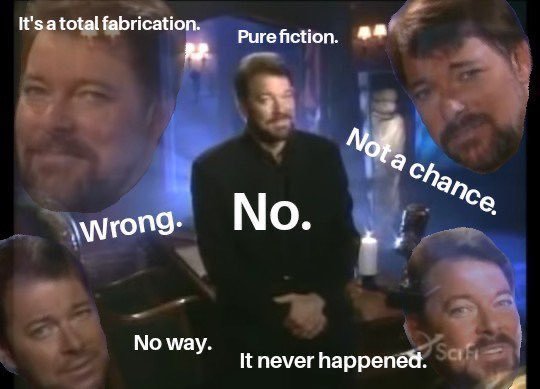
They have cool concepts and ideas, but they’re not written well. Power is just the movie if it was put into a blender and shredded and ignoring a large portion of established lore for the sake of plot. And Beneath is just a generic fantasy story with the Dark Crystal logo slapped on it.
Day 23: Which character from the YA novels/comics do you wish we would see more of?
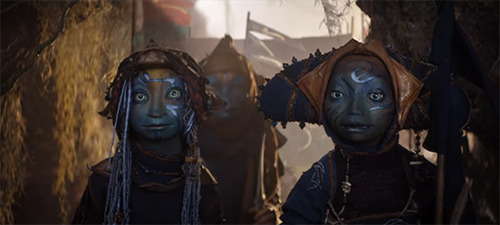
There are plenty of characters that are a given to appear in the series at some point (skekSa, skekLi, urSan, etc). And of course I want to see them, but I really hope Periss shows up (and his brother too). He is one of my favorite characters from the book series and we could use some more Dousan rep!
Day 24: Your opinion on the Age of Resistance comic?
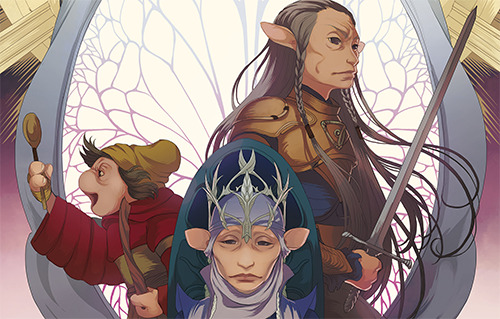
I have yet to read the comics. I’m waiting on them to be part of a collection so I don’t have to buy all of the volumes at once (I prefer owning physical copies). I’ve heard good things about them, especially the story with Hup and the current Mayrin arc. I’m excited to get my hands on them.
Day 25: The best moment/scene in the series?
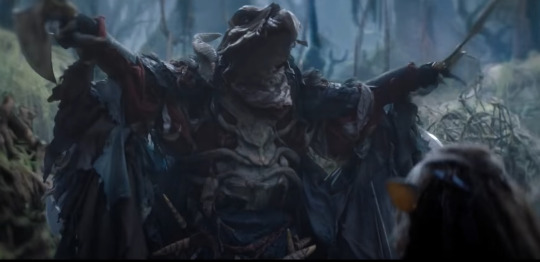
There are a lot of great moments, but Rian and Ordon’s fight with skekMal is still my favorite in the entire series. The "Speak For the Dead” scene is a close second.
Day 26: The death of a character that hurt you the most?
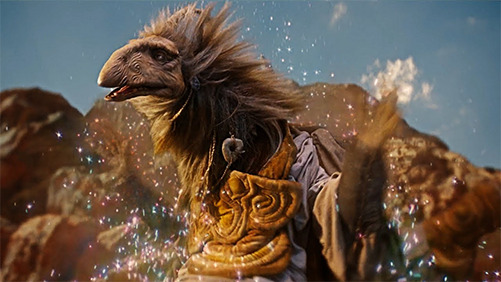
He did not deserve this. Fuck you, skekMal.
Day 27: Your favorite episode from the series?
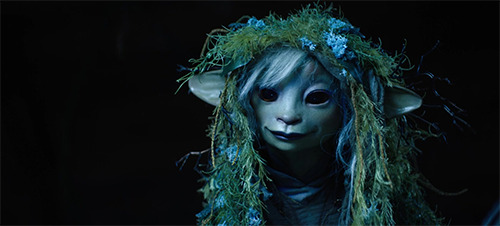
It’s got to be 4. Not just because a number of my favorite characters debut in this episode, but it’s an important one for the plot. Stakes are being raised, we’re seeing set ups to major story elements and character arcs, and events that impact the rest of the series. It also has a handful of my favorite character moments and interactions.
Day 28: Your favorite non-skeksis and non-gelfling character? Why?
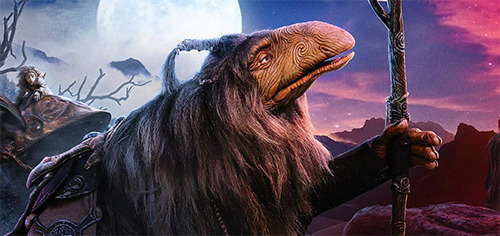
I’ve come to realize the reasons why I love urVa are the same as why I love skekMal (incredibly appropriate I might say). There’s enough information about him that we get a good understanding on who he is as a character, but still mysterious enough that there’s interest in wanting to know more. Much like his skeksis, he’s unique from the other mystics and thus giving him unique experiences that are fun to speculate. However, the YA novels are responsible for my current fondness of him.
Day 29: Do you like the urru and skeksis apart or like them as urSkeks together?
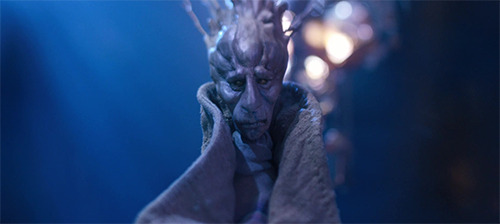
A main theme of the Dark Crystal is unity and balance. The main conflict of the franchise are the skeksis, the broken fragments of their urskek self who, according to the writers, “...[have] a dire need for the qualities they lack”. Their only salvation is to become urskeks again and unfortunately many of the pairs never achieve this. They’re basically a giant allegory for the self and self-love. While we don’t really know what they were like when they were an urskek (aside from SilSol perhaps), we can get some understanding when we look at their pairs and see what traits they share. Speculation is also fun! So as much as I love the skeksis and mystics as individuals, I prefer them to be whole again.
Day 30: What are your wishes for a possible season 2?
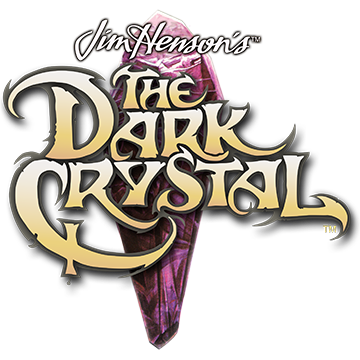
A whole bunch of things. I want to see them explore more about the mystics and their lifestyle, having Raunip play a big part in the plot, seeing more of skekSa’s fall from grace from her perspective, the beginning of the Garthim Wars, and more.
16 notes
·
View notes
Text
Pili on Netflix!
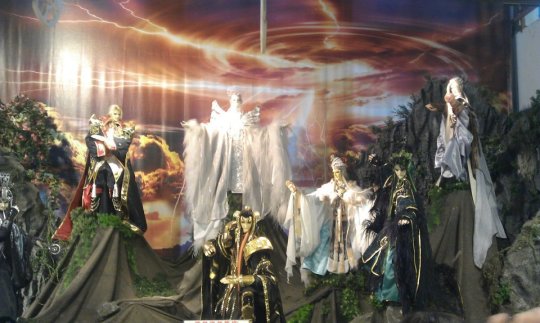
What a year for puppetry! Not only do we have the Dark Crystal prequel, Age of Resistance, but Pili is now on Netflix too. Having watched pili as a kid & being one of the few losers who earnestly liked it, it’s nice seeing it finally get more attention. And now’s a good time to spread the love and defend this artform that gets so much hate! But before I gush, here is a crash course for those of you who don’t know. This is all anecdotal knowledge. I’m not an expert, just a banana who grew up with the culture.
Pili aka Budaixi (布袋戲) is traditional Chinese glove puppetry. In China, it’s generally preserved as a traditional art so it’s very smol and basic. More popular forms of puppetry like shadow puppets tend to overshadow pili so it tends to get buried by the competition. But it still exists and has generally been stopped in time in all its original glory.
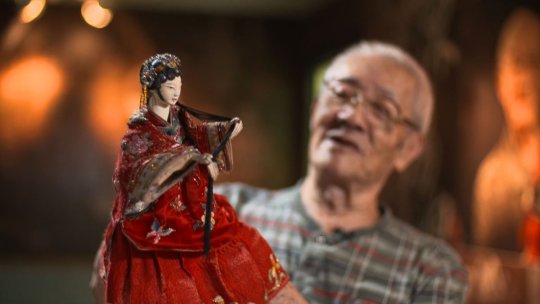
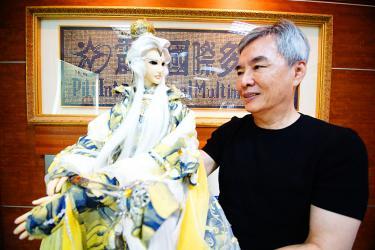
Hop over to Taiwan and pili gets more controversial. The traditional artform is still preserved but pili thrives in Taiwan because it has modernized. The old masters don’t exactly approve of what it’s become but modern pili is always innovating and stretching the limits of storytelling with glove puppets. Think the Thunderbolt Fantasy collaboration with Gen Urobuchi and PILI Fantasy: War of Dragons. Things that are in pili that weren’t there hundreds of years ago include: CGI, practical effects, camera angles, fancy set pieces, and more advanced internal mechanics. Seriously, these puppets are huge compared to their ancestors who were literally sock puppets the size of your hand. Not only can primary puppets reach up to 18 inches tall but they can blink, mouth lines, hold props, wear mascara, and sport fancy hairdos. Where it used to only take one hand to control a puppet now these guys can need upwards of 3 puppeteers to function. Hence there’s a lot of dialogue between traditionalists and puppet nouveau. Usually the who’s-doing-it-wrong sort of talk and yes vs no to anime influences from next door.
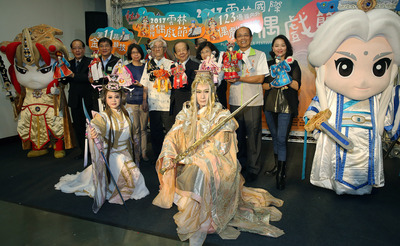
But outside this miniature world and their ring of hardcore fans, the Taiwanese population at large do not really care for it. There was practically no respect for it until Thunderbolt Fantasy received worldwide attention. Had Gen Urobuchi not praised it as artisan crafts and exported it out, no one would know that pili existed and Chinese people would just not give a damn about it. Because you see…
The usual reasons you get to the question “why don’t you like pili?” in Taiwan is:
1) The puppets are creepy nightmare fuel, especially these new fancy ones that blink and look really humanoid and stuff
2) Puppets are boring and for kids
3) It’s just wuxia with puppets, why watch that when you can watch real people do kung-fu in real locations?
4) They’re lame and not hip at all, only puppet otaku losers watch that
5) Bad influence for kids because remember that time a whole generation of children were led astray by these damn puppet shows? They made a historical fantasy pili so convincing kids actually believed the fictional protagonist was a historical figure & wrote the summary of the show on their history exams and totally failed school.
Reason #5 is the most harmful as it’s the most widely cited, at least in the neighborhoods I frequent. Televised puppet shows being so addictive it distracted children from their studies became such a huge scandal it still hurts the industry’s prestige to this day. Since that incident, pili has been inexorably linked to rotting children’s brains. Therefore, it’s cool to casually hate pili or call it dumb, because it’s linked to literal stupidity. On the flip side, it’s not cool to earnestly enjoy a good puppet show since it’s viewed as grown ass adults playing with toys and there’s the stigma that people will magically turn dumb by watching them. Basically, if you’re caught as a fan people might think you are a bit below average in the head.
I think that’s complete bullshit! Chinese people have been making wuxia historical fantasies since we invented writing! Some of those are even great classics and required reading in schools all over Asia. They’re so popular they get theatre, TV, and movie adaptations. I’ve seen some pretty pathetic wuxia historical romances that drag on and have poorly written characters and they don’t get this much hate. Puppetry is just another storytelling medium and one’s interest in that medium is a matter of personal preference, there’s nothing objectively good or bad about it. And there’s no direct correlation between glove puppets and being a dumbass.
My theory of what happened 50 years back was television became widely accessible to the public. And given how TV booms start everywhere else, the local population will be inspired to film anything and everything around them. So like Hollywood started with mimicking Broadway and theatre productions and Chinese cinema filmed Beijing Opera before coming into their own. In Taiwan, we had pili so people filmed that and it became its own television genre. Also like any new thing, the older generation aren’t sure how to react to the newfangled technology but the younger generation embrace it and that disconnect as well as society as a whole learning to adapt to the new thing cause a bit of conflict. Just like in the West, neglectful and stubborn parents were quick to point fingers at the new thing when a problem happened when the issue was learning how to adapt life incorporating the new thing. Then we figure out the new thing isn’t evil and very useful or interesting. So I think pili is finally entering that phase when we are respecting it as an artform and not being blamed for bad grades because some dipshit parents think TV is an acceptable babysitter or bad teachers looking for a scapegoat.
Thank you Gen Urobuchi for elevating pili as an art and introducing it to the rest of the world when no one else would give it a chance. Thank you Takarazuka for promoting it as something cool. I hope everyone will learn to love pili more, or at least give it the respect it deserves.

I don’t know what to think of the puppet sex though, it’s a lot to unpack.
#pili#budaixi#glove puppets#puppets#netflix#thunderbolt fantasy#Chinese puppetry#布袋戲#Taiwanese puppetry#gen urobuchi#虚淵 玄#my thoughts#my ramblings#my rambles
282 notes
·
View notes
Note
You like theatre? You’re from England, right? Have you seen any productions live on stage? (I’m a theatre geek from America so I’m curious to know what stuff is over in the UK!)
Hello! And yes, I love theatre! I did a drama degree at university for three years, and whilst I took it because I’m an actor, there’s also a LOT of written assessment and theatre-based research/learning because it all helps you with being a better actor (supposedly). I also love that you’ve used the British spelling - I don’t know why, but it’s nice when I see British spellings of words online!
As for theatre shows, I haven’t been to see anything for a LONG time. For years my grandmother took me (then my sister, then my cousins too) to see pantomimes at Christmas, which was fun! Apart from that though, the first time I really went to the theatre was to see The Woman in Black, and that was for my 15th birthday (I think). I’d seen the film and read the book before, but oh my goodness the play was amazing! We were right at the very back (last minute tickets), which I thought would make me feel less scared, but in truth was petrified the whole time. What’s amazing about TWIB is that they have maybe two or three actors doing EVERYTHING; they have one person playing Arthur, and then one other man doing every other part, I think. They use set really efficiently too, like they would sit on boxes and then act like they were on a carriage - very minimalistic set, if I remember correctly!
It was about three weeks after this, I saw a musical called Blood Brothers - I did Drama GCSE at school, and we had that trip 5th February (I remember the date because I had just come back from a four day French GCSE immersion trip and also it was Darren Criss’ birthday - that was very important to 15 year old me for some reason). Honestly, Blood Brothers is one of the most incredible things I’ve seen, and it’s pretty much one of like...two musicals I’ve been lucky enough to see onstage live. It’s about these twins who were separated at birth, and one is raised by a rich family whilst the other is raised by their poor mother, and it’s honestly such a funny and heartbreaking play/production because you can see how money/economics effected both of them. Also, the songs are absolutely FANTASTIC, 11/10!
My nan (the one who used to take us to the pantomime) bought tickets for me and my sister one winter to see our local theatre’s production of The Lion, The Witch and the Wardrobe. Honestly, I’m a sucker for all things Narnia, and I think she knew how desperately I wanted to go - this was before I managed to get a job, so I had no money of my own, and I think that’s why she offered. My nan was honestly such a wonderful grandmother, and I miss her a lot. As for the play, it was actually really great; they did a really cool fight sequence-dance-thing on-stage, and it was actually funny in a weird way because I realized halfway through that a boy in my drama class at sixth form was part of the ensemble.
When I was at sixth form (Year 12-13, 16-18 years old), I did a Drama and Theatre Studies A-Level and both years involved going to see 10 theatre productions with the class from September to December - we had to take notes during the performances for our exams (both practical and written) but it was still so amazing (and cheaper than normal because the college paid for most of it, though we did have to give a fee to them obviously). There were a few plays I saw twice because they were core texts and so the first year it was more “maybe take some notes for next year” and second year “you must take notes, you need them for the exam”.
I can’t remember all of them, I’m afraid, but here are the ones I do remember:
Our Country’s Good - this was core text for second years. The production in my first year was terrible and boring as hell - plus the acting was really not good (we were laughing during a death scene). The one in my second year was at the National Theatre and MUCH better; more professional, more interesting to watch, better acted. The only disappointment I had with that one was that there were more than 10 actors and no multi-roles - apparently the actors are supposed to multi-role as at least one prisoner and one officer, and there’s gender-swapping because of it.
Tartuffe - another second year core text. It’s actually a truly hilarious play, but the production we saw in my second year modernized it a bit too much and so we could only use certain ideas in our written exams. It was funny and entertaining though.
Rebecca - saw this in my second year, we had to take notes to help us with our self-written play we were performing. It was honestly really good, probably one of the best I’ve seen, and there was one actress especially who was incredible (Katy Owen) because the played this hilarious phone-obsessed teenage boy servant, and it’s based on Daphne du Maurier’s book. It was part of the tour in 2015, so I think you can actually find some videos if you search!
The 39 Steps - I saw this in my first year and it was absolutely hilarious. I wish I could remember more about it but it was honestly so well done and funny, and I loved it.
War Horse - Okay, this one was literally one of the best plays I’ve seen; it’s based on a book by Michael Mopurgo, and it was also turned into a film years ago. The puppetry was honestly fantastic, like at some point you literally forget that this is a puppet and not a real horse even though you can see the puppeteers in plain view and the horses are clearly not real, because it’s just so incredibly well done. I still can’t get over how absolutely incredible the puppeteers worked together to make the horses believable, like tiny little movements like the ears, or making the horses flex legs or whatever else, and the show would not have been half as incredible if not for them.
The Curious Incident of the Dog in the Night Time - this was INCREDIBLE. I honestly cannot stress enough how absolutely amazing this play was. It’s based on a book of the same name that I actually read at school, and it’s told from the perspective of a 15 year old boy called Christopher who has Aspergers. The performances were stellar, but the stage work was literally incredible - the way they managed to get you to see through his eyes by using stage lighting and other techniques (sound, for example) was absolutely brilliant.
Also, while I was at sixth form, my mum and her friends got tickets for Mamma Mia!, because the wife of one of the ladies she worked with at the time is in the entertainment business (behind the scenes), and I went with them (my sister was unfortunately too sick to go with us, so she stayed with my dad). It was honestly really fun and we had a great time - you can’t beat a bit of ABBA!
Other than this though, the only other stuff I’ve seen has been seeing drama students at university perform - both in class and at actual performances. I wrote a piece that was actually performed at Camden Fringe Festival in August 2018, and it was so amazing to see my piece being performed. Originally it was a 15 minute extract of a screenplay for a film but with some minor tweaks (which I won’t go into detail about because this post is long already) and double casting the roles (the past versions and the present versions), it was turned into a stage piece. It was the second of three pieces the university was putting on, and it was encouraging that my work was considered one of the best three out of a whole class of 15-30. I know that’s not technically counted as theatre because it’s amateur and not widely known (or known at all) but it was still a proud moment for me.
2 notes
·
View notes
Text
What It Takes To Be A Voice Actor REDUX
In 2015 I wrote a blog about what it takes to be a successful voice actor. I have since come to feel that I was perhaps a little too discouraging in tone. There are plenty of voices in the world to say “no” to your dreams. I don’t wish to be one of them. So here is my previous article on the matter, re-released and annotated to reflect my current thinking.
Old essay in plain text or bold. New thoughts struck throughstruck through and replaced with italics.
I’m going to offer two kinds of advice. First I will touch on passion, work ethic and other similarly rarefied intangibles—the habits and the mentality required to succeed. Only then will I move on to some nuts-and-bolts advice—the stuff you can take to the bank… or the booth, as the case may be.
A few caveats:
I am not a voice actor.
I have directed many wonderful voice actors. I know a lot about what “the biz” is looking for, and I know what I myself am looking for in a good voice actor. But I have done very little professional acting.
This is art, not science.
This is an art form, and like any art form it is squishy. There are no hard-and-fast rules, just guidelines, and the guidelines are riddled with exceptions. Like…keeping your eyes open is a basic rule of effective stand-up comedy, right? Well, tell that to Gilbert Gottfried or Mitch Hedburg. The same goes for VO—a certain amount of wiggle room is inherent.
Some people might disagree with me.
That’s okay! My opinion is subjective, and the industry is always in flux. There are lots of different opinions out there, and if you are a professional and you have one, please send it to me so I can make it available here, and incorporate it into my own understanding.
There is no magic bullet.
It is not a 1+1=you’rethenextNolanNorth scenario. You can follow all these guidelines and still find yourself working at The Cheesecake Factory for years. There is no shame in that. A big ingredient to success is luck. The other major ingredient is persistence and that brings me to…
Part 1: This Is A Very Hard Job To Get
Before you decide to become a voice actor it is essential that you have an understanding of what it will take to break in.
You must love it enough to spend as many as five years breaking in, working other jobs, spending money on classes and demos, and being relentlessly hardworking and self-improving, without landing a single gig. Some people waltz right in. Others have to batter down brick walls. You must be prepared to do the latter. If you are not, do yourself a favor and pick a different career.
Kal 2017: Actually, try this career. ALWAYS try to follow your dreams. You and you alone will know if you’ve had enough and want to do something else. Might take a month, might take five years, might be never. Pick the career you love, don’t let anyone tell you not to.
Let’s revisit those words “relentlessly hardworking and self-improving.”
Throughout your career, but particularly when you are breaking in, you will be competing against the very best actors in the world. You might be talented to begin with, but that is not enough. You MUST MUST MUST push yourself to be better, ALWAYS. I guarantee that your competition will.
Kal 2017: This remains true, but I temper it by saying do not worry if you are not the best to start with. Skills can be built over time. The most important thing is that you have a fun and happy life doing something you enjoy. You can actually hear the sound of stress in a performance, and it’s not a good sound. Try to relax and have fun!
This means acknowledging early-on that you always have something to learn, and then being proactive about learning it. Read books, and take classes.
TAKE CLASSES!
Take voice acting classes, take stage acting classes, take directing classes, take breath work, take improv, take puppetry, take singing lessons. If you can, take an animation class or two. Since you’re going into audio, you might try to learn a bit about audio engineering/editing.
Kal 2017: Side note on this last idea. It is a great idea, if you are moving to Hollywood to do something fun and crazy, to pick up a production/postproduction skill like film/video editing, audio engineering/mixing/mastering, AfterEffects/graphics etc. These disciplines are a great and generally flexibly scheduled way to make a good living while you try to break into the job you’re passionate about.
Why? Because people love to shoot and record, but hate to edit/do post. Post work is an art, but it is also a trade, like plumbing—labor that HAS to get done before anything can be released. If you can get good and fast at this, and you don’t mind spending hours working on reality TV, web content, and infomercials, you can make some sweet bank. You’ll often be your own boss, and even when you’re not, postproduction people tend to be the most chill. Plus you’ll likely make some great contacts within your chosen field as well.
For instance, you can work at a recording studio, and meet voice actors, directors, and producers who have already broken in. If you do an awesome job with a good attitude, and help them be successful in their endeavors, they will be predisposed to say “yes” down the road when you ask for that audition, that recommendation to an agent, that free coaching session.
Believe me, anything and everything related to performance or art will be valuable, even if it is not VO-based.
I want to give a particular shout out to Shakespearean acting techniques, particularly those pioneered by Kristen Linklater. Almost all the best actors I have known have a serious grounding in that material.
Kal 2017: This is a great time to recommend some LA coaches who are awesome. I really like:
Bill Holmes @vodoctor
Andrea Romano
Kalmenson & Kalmenson @kalmenson
The Voice Actor’s Network with Hope Levy @hopelevysings
JB Blanc @thejbblanc — Side note about this one. In addition to being a fantabulous actor, director, and coach, JB is also one of the leading experts on dialects. If you are international and looking to lose your accent, JB is the guy. If you are looking to acquire an accent for a role, JB is the guy.
And of course, me @kalelbogdanove
I’ll try to update with some reliable classes/coaches in other cities.
Also, remember to take movement classes like dance or martial arts. I know it sounds odd, since you will not be physically seen by anyone, but having an understanding of your body’s kinesthetics will improve your work.
Brian T. Delaney (Male Soul Survivor in Fallout 4) isn’t just one of the most physical voice actors I know, he is one of the most physical actors I know, full-stop. This does two things for him. First, it gives him technical control in the booth—he almost never goes off-mic, or hits the stand, or rustles his clothing (which is astonishing, given how much he moves around). Second, it invests all his game work with a sense of space and a sense of place—a layer and texture of reality that could not sound less like a guy reading a line—and his combat work in particular with a breathtaking degree of authenticity.
In short… learn how to move.
“BUT I’M ALREADY AWESOME,” you say.
Or, “I’ve already done a little voice work,” or some other excuse. Doesn’t matter. All the best working voice actors take classes constantly. They do not rest on their laurels. The best directors take classes too, including me. (He said with pompous implications.)
If you can’t afford classes, form a group of like-minded actors and practice together regularly. Watch videos on YouTube. Make your continuing education a priority.
The great thing is, these classes are FUN! You’ll meet like-minded artists! You’ll make great projects! You’ll feel impressive and confident as your abilities grow and grow! Hell, you might get laid.
The point is that while the waiting and the day jobs are can be grueling, the work itself is fun. And if you don’t find it fun… do yourself a favor and pick a different career.
Kal 2017: Again, you’ll know. It’s okay to have a bad class/day/week/month. Stick to it! You can do it! Remain open and willing to grow, and you will likely succeed.
Part 2: This Is A Very Hard Job To Do
Voice over looks easy but it is VERY DIFFICULT—particularly in games. Take a moment and go on a journey of imagination with me:
Imagine four hours at a time in a booth that is as silent as The Surface of The Moon, unless the director has the talk-back open.
Imagine making seventy major emotional adjustments an hour. (By contrast, on-camera actors make between 2 and 10 per DAY.)
Imagine formulating a performance, delivering it, absorbing a note, reformulating, and redelivering in as little as 30 seconds.
Now imagine doing that 300-600 times in four hours.
This can be extremely tough. You must be able to clear as many as 150 lines an hour, with an average of 70. (Animation is closer to 20-30.) You must be a MUTHAFUCKIN’ BAWSE at cold-reading. (Better always to give a strong-but-wrong take right off the bat, than fiddle-fart around with broken half-takes.)
And line 600 has to be as strong and fresh as line 001.
Do not confuse fun and easy. This is a very fun job when it’s done right. It is ALWAYS very hard work. And if you’re not ready for hard work… do I have to say it again? You’re smart. I don’t. You get the idea.
Kal 2017: I really don’t. Even at its most difficult this is a pretty great job, one of the few remaining that is protected by a strong union. It is hard, but it is also a blast.
Part 3: A Great Voice Actor
I’ll keep this straightforward. A great voice actor is…
Punctual. Be on time. On time means 5-10 minutes early.
Friendly, but not unctuous. Don’t be a sourpuss, don’t climb in anyone’s lap.
Patient. Sometimes (rarely) writers and clients and producers will test your patience, or act outright rude. Try to be Zen. A good director will shield you from as much of this as possible.
CONFIDENT. I’m gonna repeat this—
CONFIDENT! Always give me a strong-but-wrong choice instead of a hesitant garble. I cannot stress this enough. If you are second-guessing yourself, you are wasting everyone’s time undercutting your talent and hard work. Be kind to yourself by standing by your ability, and let the director tell you if we need to adjust the performance.
A great listener. Redirect is gonna come at you thick and fast and you will have to pay close attention!
Dedicated. You may work on some dumb projects in your life. Doesn’t matter. You give every single stupid burger commercial your all. It is your job. Do not phone it in. Do not EVER EVER EVER show up drunk, high, or bored.
A strong reader. No two ways around this one. You have to pick stuff up off the page very rapidly. Kal 2017: Yes, okay, but also don’t be afraid to ask for the script in advance. Some won’t be willing to share it, but many simply assume you do not want it ahead of time. (Many voice actors don’t.) In that case they will be overjoyed to share it so you can rehearse. It never hurts to ask.
Not afraid to ask questions. If you don’t understand a line, or a piece of direction, just ASK ME ABOUT IT. Kal 2017: Please do this. Don’t be shy. We’re here to help YOU, so you can please THE CLIENT, which in turn makes US look good.
Excited to collaborate. You should bring ideas to the material. You should also be willing to totally chuck them and try something new in the spirit of exploration, even if you think it’s gonna be garbage.
Resilient. If you fuck up, just do another one. :) Kal 2017: This is related to confident. It’s okay to mess up. All the pros do. Don’t be embarrassed. Try not to get in your head. Just climb back on that horse.
Part 4: Upsides
There are a lot of upsides. As I said, it can be very fun work. More importantly, it can be very creatively satisfying.
It also pays well. Voice actors are one of the few lucky groups of American workers still protected by a strong union. Union minimums are in the ballpark of $800.00 for a four hour session. Voice actors work like Russian plow-horses, but thanks to SAG/AFTRA they are adequately recompensed for it.
Finally, voice acting is the one realm of acting where your age and your looks do not factor in too heavily. You can break into it fairly late in life, unlike on-camera acting where you essentially reach your expiration date at 30. Steve Blum, who is currently the toast of the VO town (you probably know him as Zeb Orelios in Star Wars Rebels or as Wolverine in just about everything) didn’t really get going in mainstream animation and games until middle age. He is not unique in that respect. It is never too late.
And, you can do it until you literally croak.
Part 5: Reel Etc.
So let’s say I haven’t scared you off. Let’s say you know beyond a shadow of a doubt that there is no other job on earth that will satisfy you, and you are willing to walk barefoot across hot glass and mixed metaphors to be a voice actor.
What now?
Well, if you have been working very hard, and taking your classes and all that stuff I just spent an hour flapping my Tumblrgums about, then you might be ready to record a reel.
A reel is a short audio sample that showcases your best abilities and your best work.
Generally speaking most pro VO actors have:
An animation reel
A videogame reel
A commercial reel
Three separate reels with different material on them. If creature sounds are something they do, they might also also have a fourth creature noise reel.
A basic videogame reel should include:
The Leader—think Captain America, Superman, Princess Leia, Katniss Everdeen, and Jennifer Hale’s incomparable Fem Shep
The Rogue—think Han Solo, Black Widow, Tony Stark, Catwoman, and Marion Ravonwood
The Pale Rider—think Clint Eastwood, Batman, Ellen Ripley, Sarah Conner, Trinity
The weak protagonist — this is, like, an affable scientist with no combat skills — someone who could be endangered.
Strong crazy — this can range from a sinister psycho like The Joker, to a likeable loon like Crazy-Eyes — the key is unhinged/unpredictable.
Weak crazy — the person who saw their whole crew torn apart by demons and is a basket case — edge of sanity.
Strong antagonist sinister, rational — like Voldemort.
Strong antagonist tough, rational — more of a bully in a barfight, a “the fuck you lookin’ at?” kind.
Antagonist crazy/desperate — there’s some overlap here with the weak protag so be sure to differentiate them, or just do one or the other.
Add to this any accents you do REALLY well. Like, indistinguishable from the real thing. Not a Groundskeeper Willy Scottish accent — that belongs on an animation reel — just absolute realism. If you can’t nail these then leave ‘em out!
An animation reel is more of a laundry list of different character voices and characters you can do. The key is total consistency. Don’t add a voice or speech impediment or texture you can’t maintain for four hours at a time.
Commercial reels can play to your strengths type-wise but there’s a few standbys you hear all the time:
If you’re a dude, commercial requires (amongst other clichés)
smooth ad dude (introducing the all new Lexus Privilege RX with comfort ride technology)
excited ad dude (a triple-pounder, large fry and fountain drink for just 3.99? I’m lovin’ it!)
and befuddled husband/boyfriend/father (Honey? What’s this 'Greek yog hurt’? What happened to the double-choco chip?)
If you’re a dudette, you want
smooth ad dudette (again the Lexus)
sexy hamburger subtext (With large fries and gooey, melty cheese. She’s a little too into that sandwich, Man.)
and Motrin Momwife (So you can be the “on the PTA, on the town, side-planking, keeping up with your girlfriends gal” you want to be!)
Kal 2017: There is a recent trend in VO for commercials that I would be remiss if I did not mention. This is the “read that is so laid back and casual it is almost nonexistent.” Millenials know when they’re being solicited, so the ad industry has adopted a—in my opinion comically— disinterested tone. I call it “maybe you’d like a hamburger or whatever, I don’t care”. Here is the most extreme example I am aware of:
vimeo
Facebook Live "Hidden Talent" from Buck on Vimeo.
It is bizarre from a traditional perspective, and it will go against the grain for anyone who grew up with this:
youtube
Nevertheless, it is here, and you should make sure you have it on your reel.
In all your reels:
NO MORE THAN A SENTENCE OR TWO FROM EACH VOICE. Target length of a whole reel should be around 90 SECONDS TOTAL. If they want more than that, they will ask you to record AN AUDITION, which is what you’re hoping they’ll do anyway. Do not go over in length. You will irritate casting directors who have 500 of these to go through. Kal 2017: TRY not to go over in length, by more than one voice.😁
ONLY YOUR VERY BEST STUFF. When in doubt, leave it out. There are some actors in this business who can do a million voices, there are some who do JUST ONE THING THE BEST. Both kinds work. Better to kill it with three voices than to give them a reason NOT to hire you.
A GOOD MIX ON A GOOD MIC. You will probably have to go to a studio to record your reel. If you do, I recommend getting a voice director to work with you while you’re at it. This will cost money, but it is an investment. If you are the rare and enterprising voice actor who has a ton of equipment and is a sound engineer too, you might be able to do it yourself. Do not go too cheap on this, though. You don’t want great performance undercut by a bad mix.
One final thought:
MOVE TO LOS ANGELES. There is only one place to be if you are a serious professional in this business, and that is L.A. It is the biggest market, and the center of the industry. You might land a couple of radio spots living in East Anywhere, but you are not going to break into the industry proper.
That does not mean that you can’t TRAIN in other, cheaper places. But when you are ready to work, you come to L.A.
No, Austin and San Francisco aren’t just as good. No, your stage work in New York doesn’t count for anything out here. I wish it did, but it doesn’t.
The five year break-in period doesn’t begin until you live here. Sorry folks!
Part 6: Wrap-up
I’m sure I’ve forgotten a few things here, and I’ll try to fill in the gaps as they occur to me. Please feel free to tweet at me with any questions: @kalelbogdanove
In summary: if you LOVE voice acting, and you can’t imagine doing anything else on Earth, and you are willing to work your butt off to improve, AND you are willing to keep at it for YEARS… then go for it! I’ll see you in the booth.
Kal 2017: Or if you love it and you are willing to give it a whirl and follow your dreams. Always, always follow your dreams. (Just work hard at them, too.)
-Kal-El
P.S. — for a smart (and much shorter) perspective on this subject from an actual actor, you might try reading this Facebook post by industry luminary Tara Strong:
https://www.facebook.com/tara.strong.514/posts/10155956807350494
3 notes
·
View notes
Text
Alright, let me explain to you all exactly why Yuri on Ice didn’t deserve Best Animation.
Thunderbolt Fantasy’s crazy wuxia throwback literally made me fall in love with Asian puppet theater. I used to only associate puppetry with the Muppets and Sesame Street, and when we started learning about puppetry briefly in animation school, I just brushed it aside because I just wasn’t interested. I thought, “puppetry isn’t even as intricate and difficult as stop motion. Why should I have to learn about this?”
Then I saw Thunderbolt Fantasy and I was blown away. The fight scenes were phenomenal, puppet body parts flew everywhere, explosions kept happening. I would scream every week I saw a new episode. I never knew puppets could be used to tell stories like these before (and if it was obvious, it’s because I never paid attention). I went into the show for the Urobuchi writing, I came out a changed person.
The effort and intricacy behind these types of puppet shows are insane. Like, I can’t even imagine how much you have to practice all those puppet movements without breaking the doll (and trust me, I saw the dolls they used on display at Anime Expo, they looked pretty damn expensive). The characters are so beautifully crafted and they look amazing moving around on screen. I know that it takes a lot of training just to make dialogue acting believable, but how much do you have to train to coordinate fight sequences? And did you see the behind-the-scenes episode 0 doc? Those are actual explosives being used for special effects! Not for a big live action movie, but for a puppet show!
It’s already tough to sell stop motion to people who aren’t into animation as it is; I can’t imagine how hard it is to sell non-Muppet based puppets. I used to hear people say that they can’t stand stop motion because of how unnatural it is to see all this acting coming out of a doll. But how much different is that from regular animation? With regular animation, you are seeing acting coming out of paper or computer rendering. The beauty of animation is from seeing life coming out of lifeless things, and that kind of makes both puppets and stop motion technically the purest form of animation at its core. With how the character faces were molded in Thunderbolt Fantasy, it is next to impossible to read their feelings just by looking at them, which makes the show so narmy and uncanny to some. But when you see the character acting and movement put in, you get more feeling from their subtle gestures than you ever could from staring at a face. I felt fear, joy, excitement, sadness, and everything you would expect from any other art form while watching these puppets week to week. There is so much love and effort put into this show, that I feel it deserves as much recognition it can get.
There are too many people out there whining and saying “THEY’RE FUCKING PUPPETS. THIS ISN’T ANIME AT ALL!” And to all those people, fuck you, puppety is an important part of animation’s origins. It is just as “anime” as a Japanese produced flash cartoon. I was always curious about the side of Japanese animation that isn’t based around the same old 2D and CGI stuff they put out every year, but it always feels so closeminded in both the fans and the industry. I have seen people who don’t consider Japanese produced CGI video game cutscenes as anime and I’m like, ??????? Do you even consider them as animation in general? I remember a few years ago, Anime News Network put out an article on this pastel goth horror Alice in Wonderland stop motion film that was being released. I was so excited because I have never seen a full length stop motion Japanese feature before and I was so adamant at labeling it as “anime” right off the bat because, dammit, stop motion is animation and it was animated in Japan, it is an anime! Unsurprisingly, NO ONE GAVE A SHIT ABOUT IT. I probably have to lose an arm and a leg just to find anyone WILLING to fansub it if I paid them to. What makes that Alice film and Thunderbolt Fantasy so easily ostracized from the rest of the community is exposure and if projects like those get more success, we should be able to see more like them, and maybe then people will finally pull their ignorant asses off the ground and call them anime.
And don’t even get me started on the whole “IT’S NOT ANIMATED IN JAPAN” shit. Because guess what? No one is complaining that we’re calling To Be Hero an anime and the majority of that show was animated by popular Chinese web animators. In fact, the same goes to a large number of these Chinese co-pros involving heavy studio collaboration. So what if the puppetry was done in Taiwan? This show would not even exist without Urobuchi’s insistence. He was so determined to get this show off the ground and we’re lucky it was Urobuchi who came up with Thunderbolt Fantasy or else we never would’ve seen it past the starting line. The Japanese TV networks advertised this like crazy as Urobuchi’s big new project, and if you don’t consider an animated work with Gen fucking Urobuchi’s name hammered on to every open angle as an anime, I don’t know what to tell you.
I’m frustrated yet not surprised at all that Thunderbolt Fantasy was omitted from the Anime Awards. Thunderbolt Fantasy deserves so much more. It deserved some kind of recognition at least! You will not see a puppet show as fun, exciting, or well animated as this one (and if there is, sorry again! I’m really new to the scene). Thunderbolt Fantasy was one of the best action anime of the year, and barely anyone even knows it exists, and that is a crime! By the time season 2 rolls out, I better see more people hyping it up and I hope Crunchyroll will try harder to promote it. Everyone should check this show out at least once.
4 notes
·
View notes